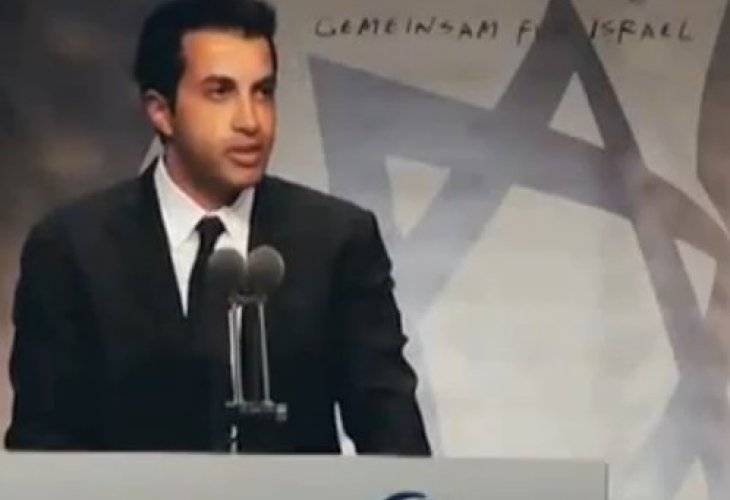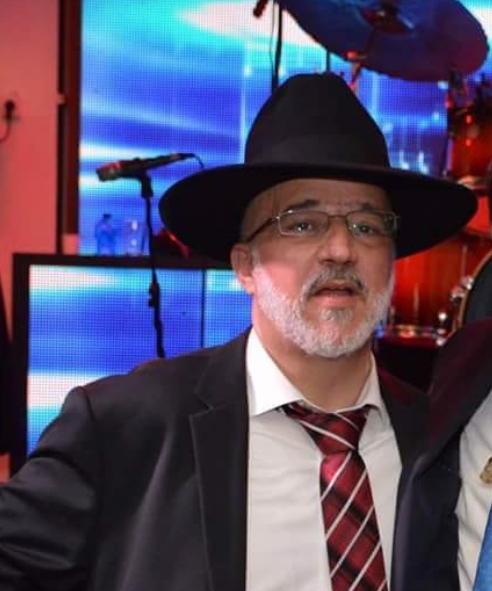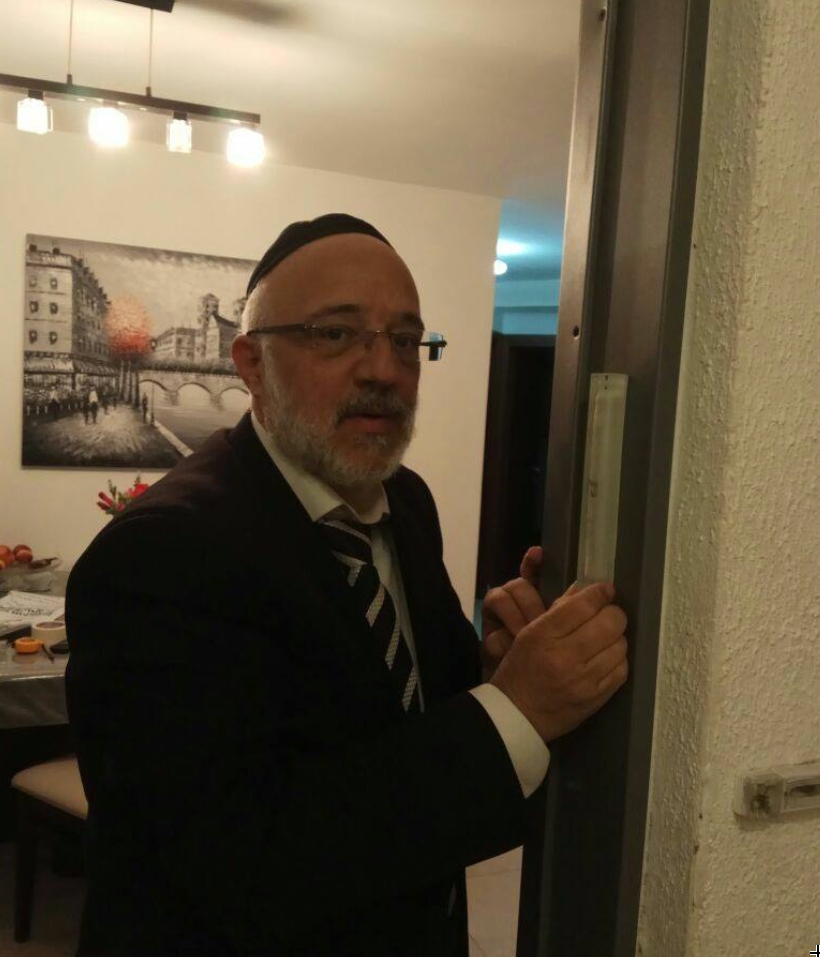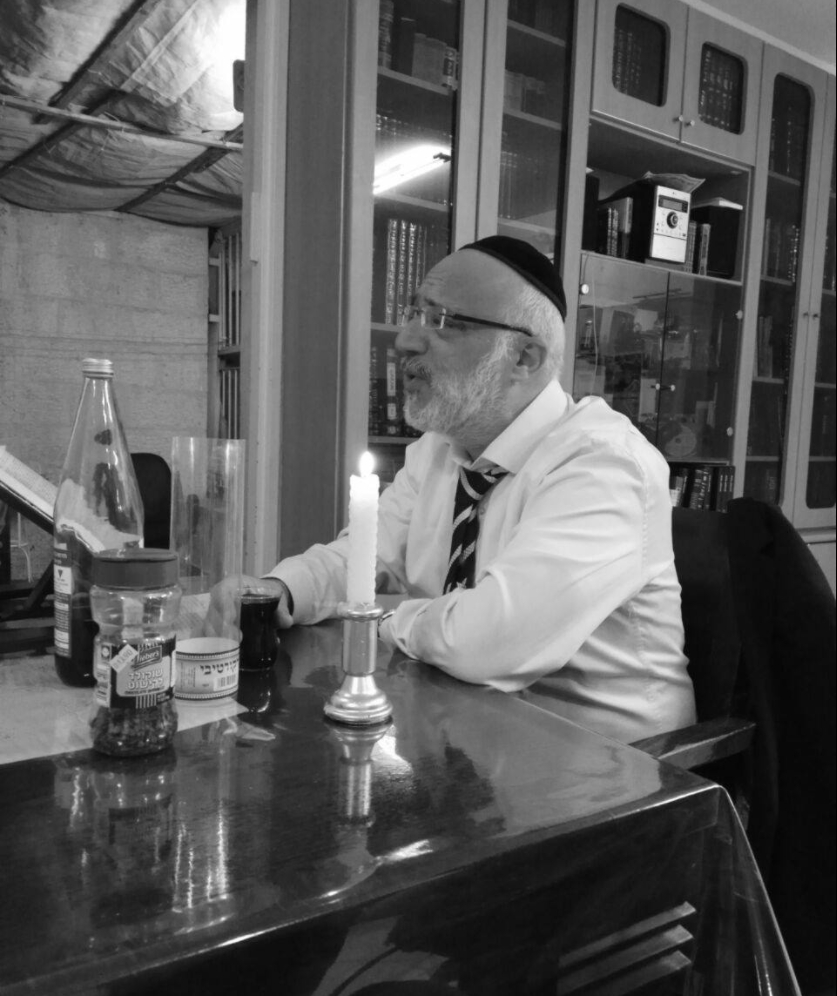Shaken and Fearful: Cantor Rabbi Moshe Gabra on Stirring Cantorial Moments
Rabbi Moshe Gabra leads Rabbi Bakri's kollel in Jerusalem but takes on the role of a captivating cantor during the Days of Awe. Ahead of Yom Kippur, he shares about his first cantorial experience, what he learned from his mentor Rabbi Nissim Yagen, and offers advice for those who find it hard to concentrate during prayer.
 Rabbi Moshe Gabra (Photo: from Facebook)
Rabbi Moshe Gabra (Photo: from Facebook)Rabbi Moshe Gabra is known to the public in two capacities: as the head of Rabbi Bakri's kollel in Jerusalem and as a talented cantor with an emotional and melodious voice that touches the heart of every Jew who hears him.
But as we talk with him in anticipation of Yom Kippur, he takes us back in time nearly 40 years. "As a child," he recalls, "I grew up in the Nahlaot neighborhood of Jerusalem, where I absorbed the study of cantorial art and the poetry of the Days of Awe profoundly, not only I but also all my friends and the children who lived in the neighborhood. With us lived an elderly cantor named Siman Tov Shai, who would sit and teach all the children cantorial excerpts and singing requests.
"He advanced each child at their own pace and according to their talents, until we reached a state where the atmosphere during the Days of Awe was uplifting and truly exalted. It was different from today. Nowadays, the Selichot prayers are sometimes recited quickly and almost perfunctorily, but then, 40 years ago, we would wake up at four in the morning to pray the Selichot for two hours, eagerly anticipating the cantorial section we learned. The Selichot assembly was prolonged, and that was its uniqueness."
"Then the Rabbi Burst into Tears"
Although Rabbi Gabra performed cantorial art on various occasions since his childhood, he wasn't an official cantor until the age of thirty and hadn't even considered it. That's certainly surprising for someone who knows him today and knows how much cantorial art is part of his life. However, he says, "I loved praying aloud, and I also performed cantorial art here and there on different occasions, but really not during the Days of Awe prayers."
At that time, he studied and prayed at the kollel of Rabbi Nissim Yagen zt"l during the Tishrei holidays. "I was offered several opportunities to be a cantor during Rosh Hashanah and Yom Kippur, but I always felt unworthy of it. It seemed too much of a burden for me, so it happened that I was the regular cantor for the Selichot, but not for the Days of Awe themselves."
 (Photo: from Facebook)
(Photo: from Facebook)About 30 years ago, Rabbi Gabra was surprised to receive a phone call on the eve of Rosh Hashanah from Rabbi Yagen – his kollel head, who was very sick and was then abroad for treatments. "The Rabbi informed me on the phone: 'You will be my cantor this year.' I tried to respond, saying, 'But I've never been a cantor during the Days of Awe,' and he simply didn't answer – for him, it was a done deal. I had no choice, and so I found myself before the ark."
But that year, something else happened: "On Yom Kippur, after the Torah reading, Rabbi Yagen suddenly stood up and began to speak to us. He said, 'My dear students, I don't know how much time I have left to live, and I cry and plead with you: now, before the Mussaf prayer, please pray to Hashem to give me life. I want to continue to bring merit to the multitude; I want to continue to influence and not to stop.' The Rabbi began to cry, and it felt like Tisha B'Av. Everyone wailed with him. Then they started to pray the Mussaf prayer.
"I remember the repetition of the Amidah by the cantor in that prayer. I prayed as a cantor, and when I reached the 'Unetaneh Tokef' section, I was overwhelmed with such weeping that I had never wept in my life. I couldn't continue. My teacher and Rabbi, who had just pleaded with us all to pray for him, was sitting there in the east, and suddenly the meaning of the words 'life and death' became alive and tangible. I also thought about the Rabbi, who wasn't asking for life to enjoy worldly pleasures, but what interested him was to live to bring merit to the people of Israel. The feelings of those moments I will never forget, and to this day, when I reach 'Unetaneh Tokef' in prayer, the image of Rabbi Yagen zt"l appears before my spiritual eyes."
To You, My God, Is My Desire
Since that first prayer where Rabbi Gabra served as cantor, the cantorial art during the Days of Awe has become a tradition for him. Initially, he prayed in the yeshiva and later continued to other places. After the third year, where he served as cantor during the Days of Awe, he released a disc of Selichot melodies called 'I Lift My Eyes to You, Hashem.' The disc has been distributed for 17 years worldwide. "This led to many inquiries from abroad, and suddenly I realized there was an opportunity to come strengthen there as well," he says.
Rabbi Gabra notes that over the years, he has managed to visit Mexico and across New York. Still, in recent years he insists on visiting a particular community in Long Island. "This is a community I particularly like; I initially went there with Cantor Rabbi Benyahu Barzani to serve as public representatives and to introduce the authentic Jerusalemite Selichot melodies. In the beginning, only a few dozen people came, and no one knew the version at all. But today, there are over 600 worshippers who all pray like the Persian congregation, and they are familiar and accustomed to it. I really don't know what I did to deserve such an honor that Hashem blesses me with such a great merit of the masses. It's an incredible privilege."
 (Photo: from Facebook)
(Photo: from Facebook)Do you use recognized melodies in prayer, or do you innovate tunes?
"Why would I innovate?" he is horrified. "I only use existing and ancient melodies. I think it is essential to stick to authenticity and not to play with new tunes – if you are Moroccan, you should use a Moroccan tune, and if you are Aleppo, you should sing a Halabi tune, and the same goes for the Jerusalem version. You don't play with it because people might feel a sting in their ears, and they will be frightened to the point of feeling that 'they ruined their Yom Kippur.' Exactly so. On Yom Kippur, the goal is to maintain authenticity and tradition."
"However," he emphasizes, "I do innovate melodies from time to time in sections between the poems, so it only involves tunes without words, making it possible. In my opinion, it is even desirable because the heart rises."
After years of cantorial art, isn't it hard to continue to be moved by every word of the prayer anew?
"No, that's actually not true," he surprises, "exactly the opposite – the more years that pass, the stronger I become. It's not for nothing that the sources bring that one should choose a cantor who is older, humble, and ideally has children. Because naturally, as the years go by, you become more exposed to crises and things to pray for. A twenty-year-old cantor, at the beginning of his life, will never know how to pray for things like a sixty-year-old cantor does. Just today, after years of involvement in cantorial art, I feel like I'm able to enter the prayer itself. Every time I say 'Here I am, poor,' I feel a real tremor. The responsibility is immense – to transmit the prayers of the people of Israel, it is also the place to address the worshipping public – please, when you prepare for prayer, pray for us, the cantors, too, that we may successfully convey your prayers and perform our duties in the best possible way."
In your view, what is the most emotional part of the Yom Kippur prayer?
"Of course, there are many emotional parts, but the part where I always get most emotional is the poem that opens Yom Kippur – 'To You, my God, is my desire.' I perform it with a Jerusalemite tune, and I always tear up when I say these words. I remember that 17 years ago, I asked to record this poem in the studio. It was about two months before Yom Kippur, but even then, I felt the atmosphere of Yom Kippur. It's truly a special poem, and the Sephardic communities have a custom, before a person passes, to recite this poem to him, as it is essentially a confession, and it also opens the heart and stirs it."
The Recommendation: Use an Explained Prayerbook
Finally, Rabbi Gabra addresses people who sometimes feel it is difficult for them to concentrate during prayer and that they lose focus. "I can recommend a few things that might help – first of all, it's clear that no one can understand high words like 'If a sparrow's portion' and such, and therefore it's very advisable to use explained prayerbooks. Once you understand what you're saying, it's easier to sit and concentrate. For those who find it hard to focus, it's better to choose a minyan where the cantor doesn't extend overly long; no one said you have to pray in the longest minyan."
 (Photo: from Facebook)
(Photo: from Facebook)He also mentions an additional point – "It's very worthwhile to read the book 'Gates in Prayer' by Rabbi Shimshon Pincus zt"l. It's a unique book that clarifies the meaning of prayer more than anything else; it truly opens the heart.
"And may it be," he concludes, "may it be that we all, all the cantors and all the worshippers, merit that our prayers will be accepted willingly and that we will pray with humility and submission. I wish all of us that Hashem hears our outcry and prayers and accepts them with favor, and we are inscribed and sealed for good life and peace."

